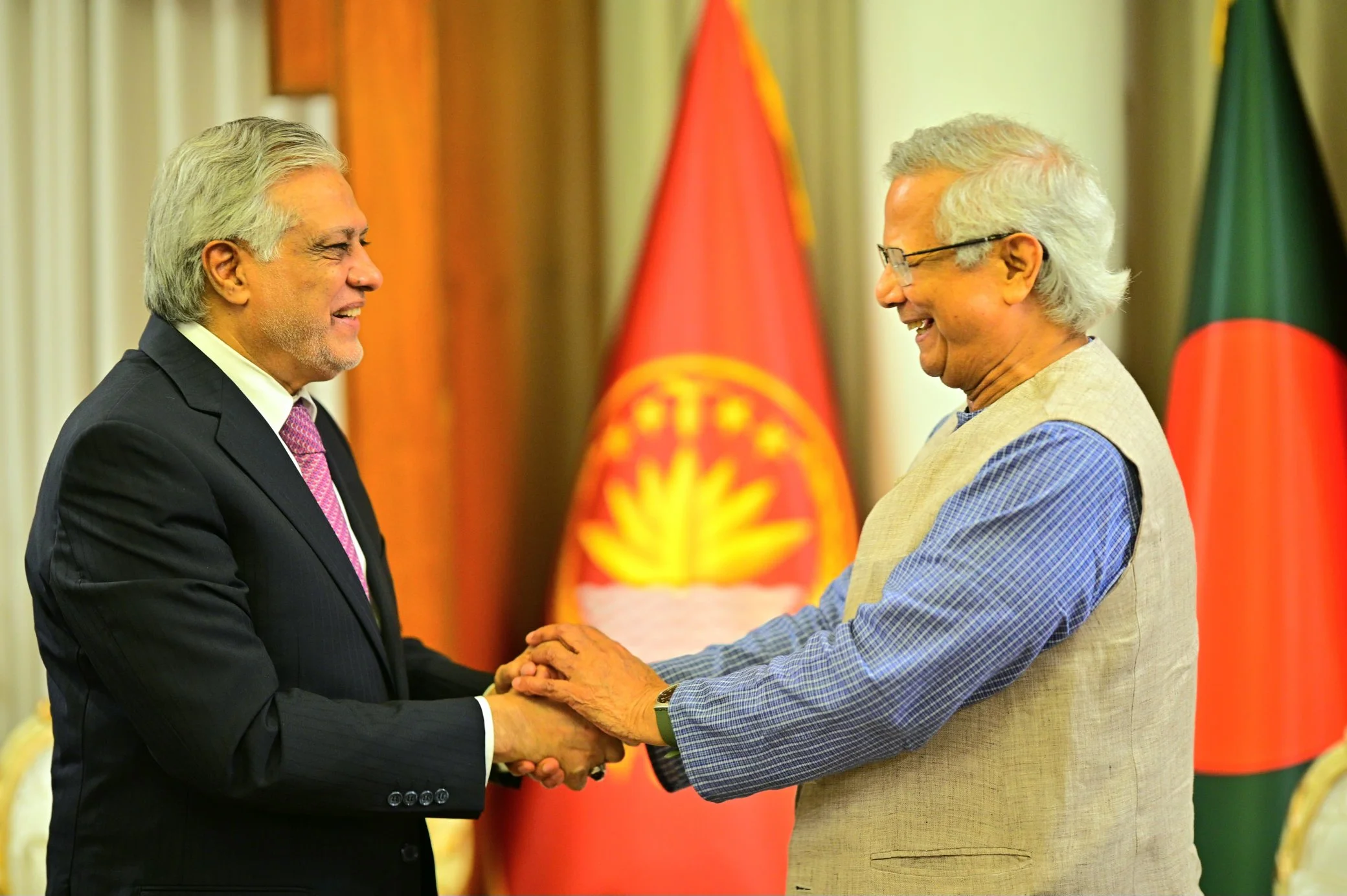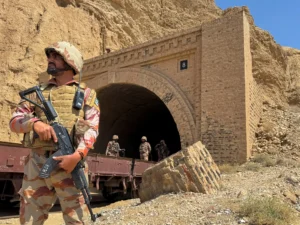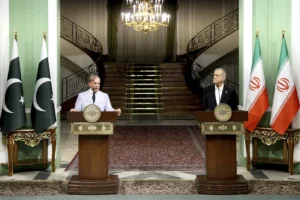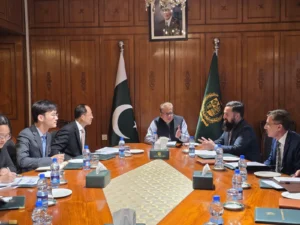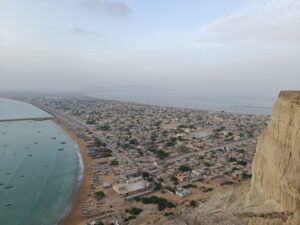Bangladesh has embarked on a transformative journey to reset its diplomatic ties with Pakistan following Foreign Minister Ishaq Dar’s groundbreaking visit to Dhaka on August 23–24, 2025. This historic diplomatic engagement marks the first official visit by a Pakistani Foreign Minister in 13 years, signaling a new era of cooperation between the two South Asian nations.
The timing of this diplomatic breakthrough is particularly significant, coming in the wake of political changes in Bangladesh that have created fresh opportunities for regional collaboration. Deputy Prime Minister and Foreign Minister Senator Mohammad Ishaq Dar’s visit resulted in concrete agreements that promise to reshape bilateral relations across multiple sectors.
Bangladesh Leadership Embraces Regional Cooperation
During his meetings with Chief Adviser Professor Muhammad Yunus, Dar found a receptive partner eager to strengthen regional ties. Yunus emphasized his commitment to revitalizing the South Asian Association for Regional Cooperation (SAARC), stating that he considers relationships with Pakistan and other SAARC members among his highest priorities. This alignment of vision between the two nations created a foundation for meaningful collaboration.
The discussions between the two leaders covered crucial areas, including regional connectivity, youth engagement, trade expansion, and economic cooperation. Yunus’s emphasis on SAARC revitalization particularly resonated with Pakistani objectives, as both nations recognize the potential benefits of enhanced regional integration.
Bangladesh-Pakistan Knowledge Corridor Launches Educational Revolution
One of the most significant outcomes of Dar’s visit was the launch of the Pakistan-Bangladesh Knowledge Corridor, representing a comprehensive educational partnership between the two nations. This initiative will provide 500 scholarships to Bangladeshi students over the next five years, with 25 percent specifically allocated for medical education in Pakistan.
The knowledge corridor extends beyond student exchanges, encompassing training programs for 100 Bangladeshi civil servants in Pakistan and expanding the Pakistan Technical Assistance Program from five to 25 scholarships annually. This educational cooperation demonstrates both countries’ commitment to human resource development and knowledge sharing.
Bangladesh Benefits from Six Strategic Agreements
The visit culminated in the signing of six memoranda of understanding that will facilitate deeper cooperation across various sectors. The most immediate benefit for Bangladesh comes through the visa exemption agreement for diplomatic and official passport holders, eliminating visa requirements for five years and marking the first such arrangement since 1971.
Trade cooperation received significant attention through the establishment of a Joint Working Group on Trade, designed to identify opportunities and remove barriers to bilateral commerce. This mechanism will complement the revival of the Joint Economic Commission after a 20-year hiatus, providing institutional frameworks for sustained economic engagement.
Academic and cultural cooperation also featured prominently, with agreements between the foreign service academies of both countries and a cultural exchange program designed to enhance people-to-people connections. Media cooperation through the Associated Press of Pakistan and Bangladesh Sangbad Sangstha will facilitate better information sharing and understanding between the two nations.
Bangladesh Sees Revival of Economic Ties with Pakistan
The economic dimension of the relationship has shown remarkable improvement, with bilateral trade increasing by 27 percent in the 2024–25 financial year to reach $865 million. This growth reflects the potential for expanded commercial relations, particularly in sectors where both countries have comparative advantages. Food security cooperation has emerged as a priority area, building on Pakistan’s successful supply of 50,000 metric tons of rice to Bangladesh earlier in 2025. The two countries have identified opportunities for collaboration in agriculture modernization, renewable energy, steel industry development, halal trade, leather industry, and shipbuilding.
The revival of air connectivity represents another significant development, with Fly Jinnah expected to launch direct flights to Dhaka by October, followed by Pakistan International Airlines after its privatization. These direct flights will facilitate business travel and strengthen commercial ties between the two nations.
Bangladesh’s Strategic Position in Regional Politics
Beyond bilateral cooperation, Bangladesh’s engagement with Pakistan carries broader regional implications. Both countries have expressed commitment to addressing international issues collectively, including discussions on Palestine and the Rohingya crisis. This coordination on global issues demonstrates the potential for Bangladesh and Pakistan to work together on matters of mutual concern.
The emphasis on SAARC revitalization positions Bangladesh as a key player in regional integration efforts. By working closely with Pakistan to breathe new life into SAARC, Bangladesh can leverage its geographic position and economic potential to become a crucial bridge between South and Southeast Asia.
As Bangladesh continues to navigate its political transition, the successful engagement with Pakistan provides a template for constructive diplomatic relations based on mutual benefit and respect. The comprehensive nature of the agreements signed during Dar’s visit suggests that both countries are committed to sustaining this positive momentum in their bilateral relationship.
Also Read: Bangladesh-Pakistan: Shaping a Shared Regional Future

